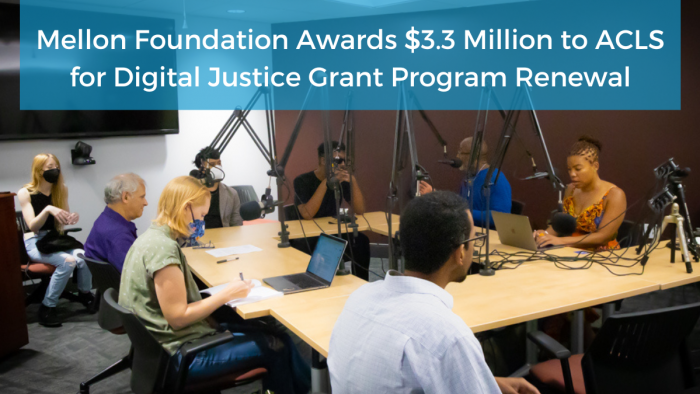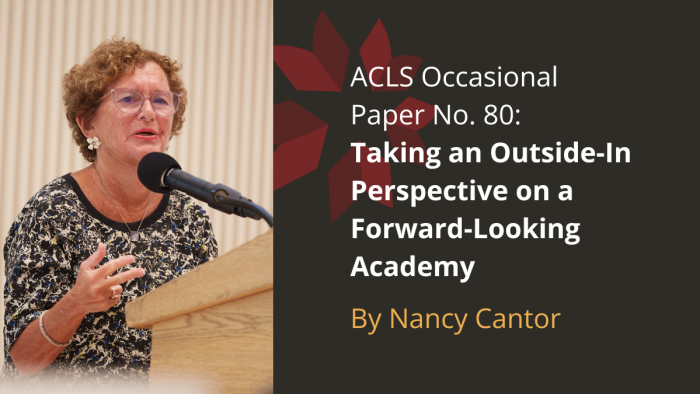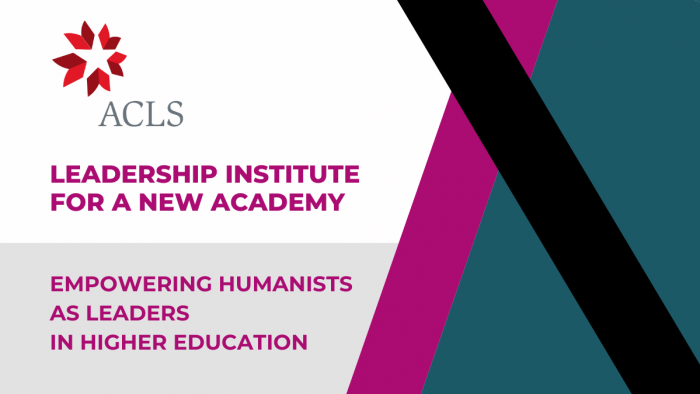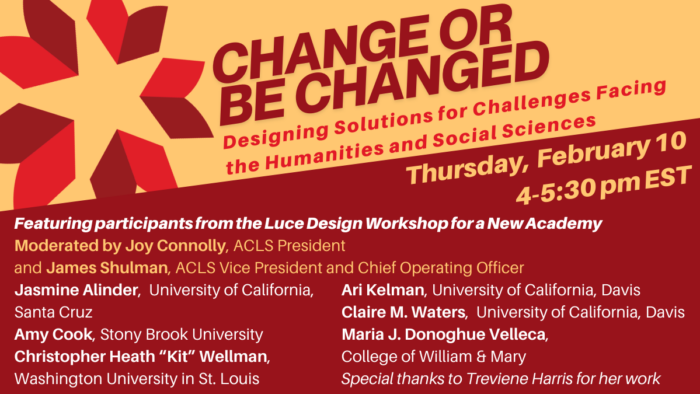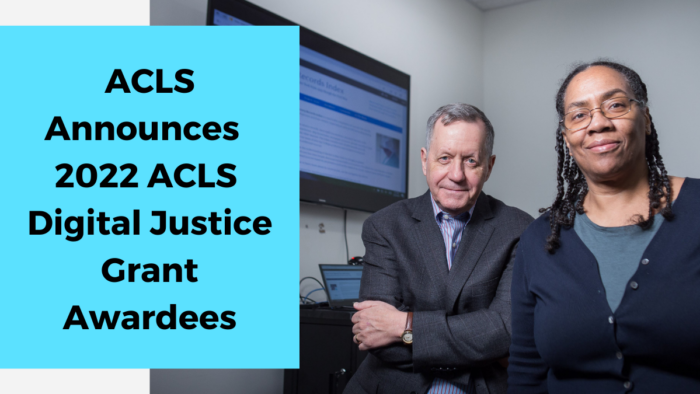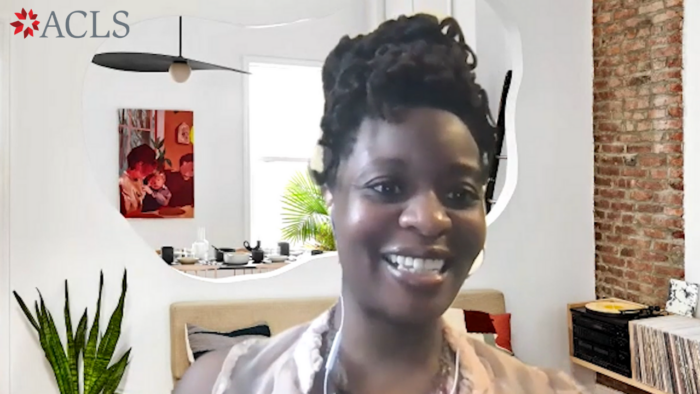The Intentional Design for an Equitable Academy (IDEA) unit draws on human-centered design as a methodology for developing activities and convenings where we can re-envision academia’s culture, policies, and practices. Led by IDEA Director Jovonne Bickerstaff, the unit includes the Intention Foundry (IF), the ACLS Digital Justice Grant Program, and the Leadership Institute for a New Academy (LINA). ACLS takes this moment as a call for cultivating opportunities for reparative intervention and transformative engagement that further ACLS efforts to enhance equity, justice, and well-being in the academy.
ACLS has a long history of convening scholars, administrators, learned society directors, leaders of national and international academies, and public figures to share ideas and solve problems. As outlined in our Strategic Priorities, ACLS seeks action on major challenges facing humanistic studies and continues to expand our capacity to serve as a key resource for societies, scholars, and administrators, with a focus on students and scholars who have not historically had a seat at the table in discussions about institutional change.
The core aims of IDEA include:
- Curating and facilitating forums for collaborative visioning and planning that bridge groups across the higher education ecosystem.
- Developing curriculum & experiential opportunities for re-envisioning key power systems, taking deep dives into challenging issues, and strategizing for substantive change.
- Designing initiatives that strive to alter the status quo of systems in academia, while working to support the most vulnerable in navigating systems as they currently exist.
- Establishing new partnerships to engage constituencies (particularly those facing underinvestment in the academy) in people-centered equity-advancing efforts.
IDEA Programs
Explore ACLS programs to re-envision systems and structure in academia in order to enhance equity, justice, and well-being.
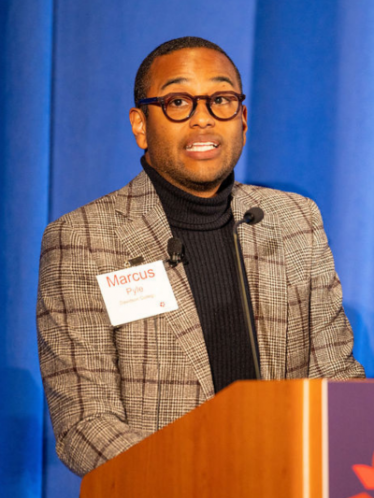
A forum for advancing equity, justice, and anti-racism for early career scholars from historically marginalized groups, ACLS society leaders, and higher education administrators
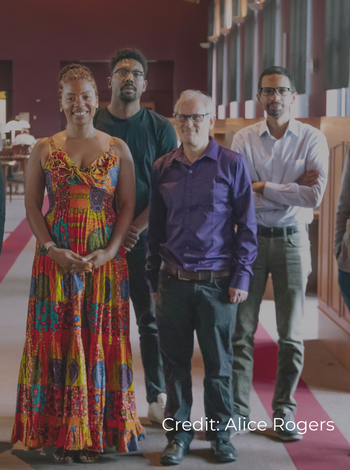
Providing resources for projects that diversify the digital domain, advance justice and equity in digital scholarly practice, and contribute to public understanding of racial and social justice issues
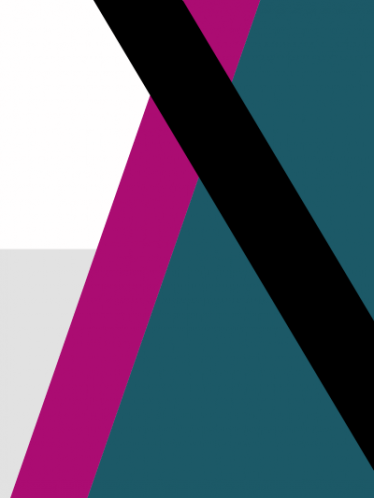
Pilot initiative equips faculty to forge career paths in academic administration that will strengthen the humanities and drive forward-looking change

One of the powerful things about the reinvention…rules that we thought we had to stick to all of a sudden got all thrown out the window…If we can just hold that spirit, that some of the things we think aren’t changeable or aren’t moveable actually are changeable and are moveable, then we can create anew.
Na’ilah Suad Nasir
Related News & Events
Program supports digital humanities projects focused on the histories and cultures of historically marginalized communities
News Article
May 24, 2023
“Taking an Outside-In Perspective on a Forward-Looking Academy,” delivered by Nancy Cantor, Chancellor, Rutgers University–Newark.
In summer 2023, ACLS has hosted convenings bringing fellows, grantees, learned societies, and university administrators together.
News Article
August 8, 2023
New LINA pilot program brings promising faculty leaders together to forge career paths in higher education administration to strengthen the humanities and drive forward-looking change
News Article
January 12, 2023
Program supports fifteen digital humanities projects that diversify the digital domain
News Article
May 31, 2022
In a new video conversation, Jovonne Bickerstaff discusses the Intention Foundry, a collaborative project convening learned society directors, emerging scholars, and university administrators.
News Article
July 13, 2021
